Kinma preschool
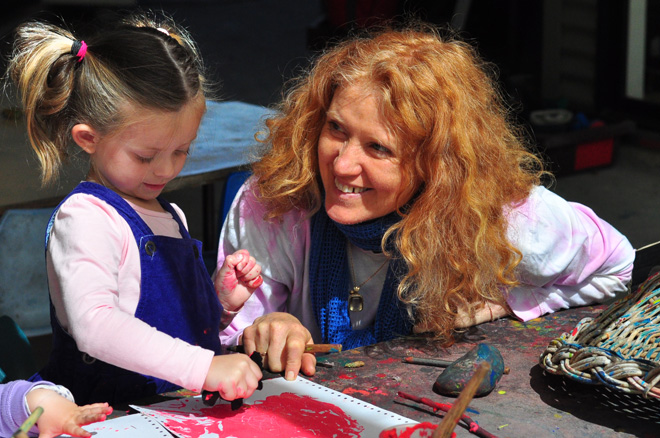
Play-based curriculum, beautiful child-centred learning environment, parent participation welcome!
Class sizes are small, and multi-age, allowing for individualised programmes; the child-centred philosophy means that teachers and children approach learning as a shared experience. The consideration of stages, rather than ages, is basic to the provision of appropriate experiences.
Academic, social and motor considerations are discussed by each child's parents, teacher and the coordinator to determine which group is the most appropriate for the child at any given time. Parents will always be involved in making decisions about movement of children between groups. However, they are asked to respect the professional opinions of the staff.
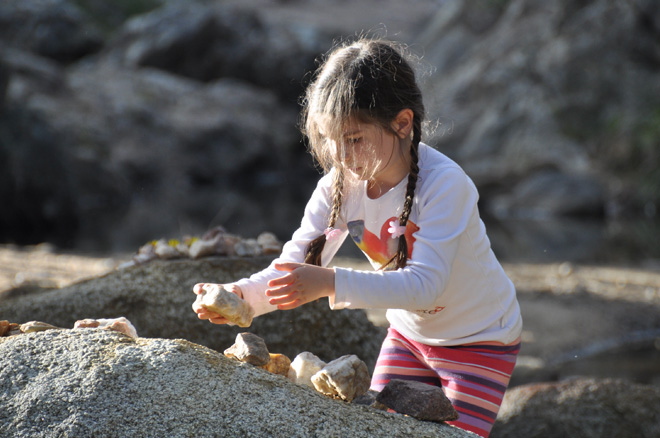 Our focus for maths is to represent numbers in a range of ways and recognise the relationship they have to our everyday life. This includes measurements in both cooking and creative arts, as well as our everyday activities.
Our focus for maths is to represent numbers in a range of ways and recognise the relationship they have to our everyday life. This includes measurements in both cooking and creative arts, as well as our everyday activities.
We aim to make visible to the children the strategies they use to solve problems in order to understand that there are many ways to arrive at an answer, that also relates to our theme.
Through our maths experiences, we aim to promote critical thinking and problem-solving skills. Our groups are often small and we will continue to use our (non-competitive) maths games from last year as well as new ones.
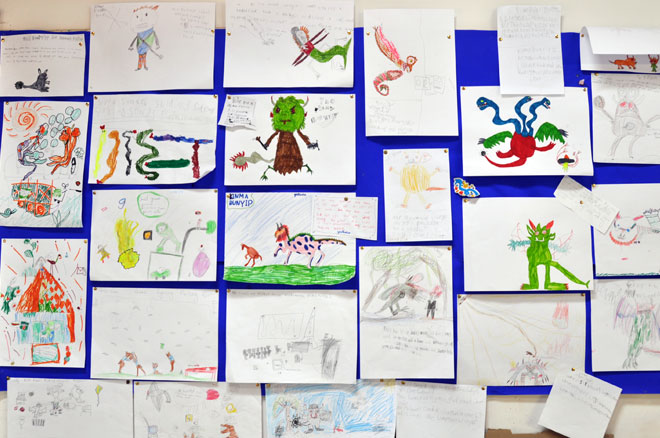 Our morning session is reading, which is a fantastic opportunity for parents to connect with their children’s leaning and to mingle with other families.
Our morning session is reading, which is a fantastic opportunity for parents to connect with their children’s leaning and to mingle with other families.
Each day we separate into two literacy groups. The younger group practises letter recognition and phonics games, while the older group develops blends through writing and games. These groups are frequently split into two again to accommodate for all the children’s stages of development.
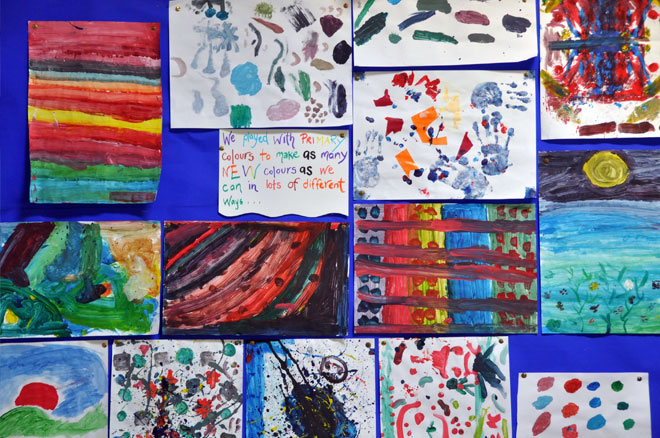 It is a lot of fun working with children and art. We love to looking at perspective and the intention of artists.
It is a lot of fun working with children and art. We love to looking at perspective and the intention of artists.
We develop pictures that are more intricate as we look at art and look at how many things are represented in such detail. We also discuss how an artist may evoke the audience to use their other senses such as smell, taste, touch and sound.
The whole group worked extremely hard and produced works of art that had us smelling everything from spaghetti bolognaise to flowers.
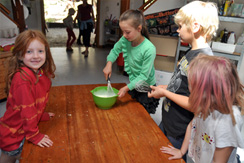 With our new classroom comes a fully functional stove and oven! Cooking will be part of our planning for each week as we follow the children’s interests, which seems to be lemonade this week!
With our new classroom comes a fully functional stove and oven! Cooking will be part of our planning for each week as we follow the children’s interests, which seems to be lemonade this week!
We are introducing literacy and maths into the process as we record procedures and measure our ingredients.
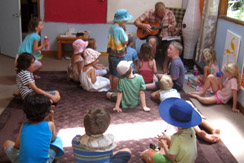 We are singing with the children everyday, to bring them together and build confidence within the group.
We are singing with the children everyday, to bring them together and build confidence within the group.
We aim to introduce concepts such as the colour of music and using music to communicate as part of our theme.
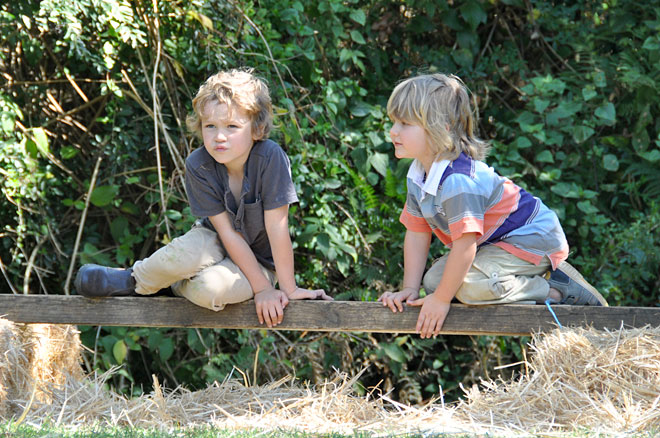 For group challenges we tried to make our way over the grass using two planks of wood, three paint tins and one pair of stilts. This proved difficult as the whole group had to work together without stepping on to the grass.
For group challenges we tried to make our way over the grass using two planks of wood, three paint tins and one pair of stilts. This proved difficult as the whole group had to work together without stepping on to the grass.
The group worked well together to improvise and figure out the best strategy. This was an extremely difficult task and I was proud of everyone that gave it a go.
Recently group one started their own restaurants. The process of these restaurants evolving has been a fascinating exercise in dreaming, implementing, compromising, trialling, sharing, chatting, building and collaborating ideas.
Some ideas worked and some are a work in progress, some just didn’t work at all. The process however is all that seemed to matter.
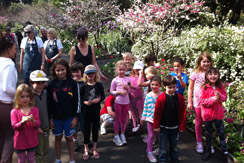 Group 1 ventured to the Royal Botanic Gardens in the city for a day of Dr Seuss’ ‘The Lorax’ exploration. We drank and played at the huge fountain and bubblers; ate morning tea underneath some beautiful trees; we spotted a blue tongue lizard sunning himself. Even the walk to and from the toilet was an adventure, with a strip of stunning, scented flowers lining the path.
Group 1 ventured to the Royal Botanic Gardens in the city for a day of Dr Seuss’ ‘The Lorax’ exploration. We drank and played at the huge fountain and bubblers; ate morning tea underneath some beautiful trees; we spotted a blue tongue lizard sunning himself. Even the walk to and from the toilet was an adventure, with a strip of stunning, scented flowers lining the path.
Then our tour guide Philippa arrived and off we sat to read The Lorax. Sat? Not us, we acted it out! There were the Truffula Trees (standout performances by Paul and Katerina); the brown bar-ba-loots headed by Chief Bar-ba-loot Andy; the humming fish led by Jenny; the Swomee Swans chiefed by Brooke; Owen played the Once-ler and Hannah was the Lorax.
What a treat for the business people on their lunch breaks to see us swaying, stomping, flapping and acting!
Please see our transition from preschool page
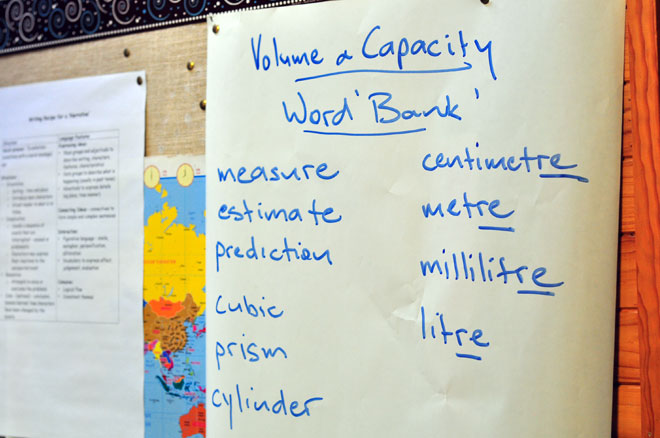 In numeracy we have been attempting to complete “Stefan’s Outrageous Challenges” which are a mixture of extremely difficult construction and problem solving challenges.
In numeracy we have been attempting to complete “Stefan’s Outrageous Challenges” which are a mixture of extremely difficult construction and problem solving challenges.
For example, making a marble track more than 2 metres long that works, or a tower one metre high out of toilet rolls, or a domino tower exactly fifty centimeters high, or a bridge out of Lego with a span of more than one metre that can hold the weight of a tennis ball.
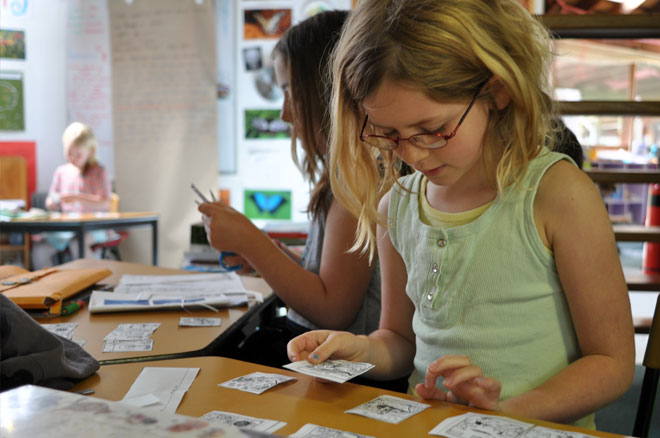 We will be listening to and writing our poems all this and next week in preparation for the poetry festival on the last Friday of term. We have been examining the work of Kenn Nesbitt at the moment. A very humorous and creative poet for kids.
We will be listening to and writing our poems all this and next week in preparation for the poetry festival on the last Friday of term. We have been examining the work of Kenn Nesbitt at the moment. A very humorous and creative poet for kids.
Students are encouraged to bring in any poems they like and to think about a poem they might like to recite on their own or with friends at the poetry festival. We will also be reciting a poem as a whole class on the day- once we have decided which one we are going to do!
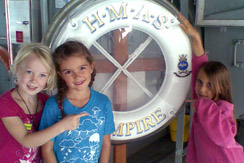 Our theme this term is boats.
Our theme this term is boats.
We will be doing many literacy activities based on this theme including researching, narrative writing, jointly reading a class novel (Storm Boy), spelling and scientific experiments using our creek and local waterways such as Narrabeen lakes, Pittwater and hopefully Scotland Island.
We began constructing our boats from recycled materials and bits and pieces students have scrounged from around the home and neighbourhood.
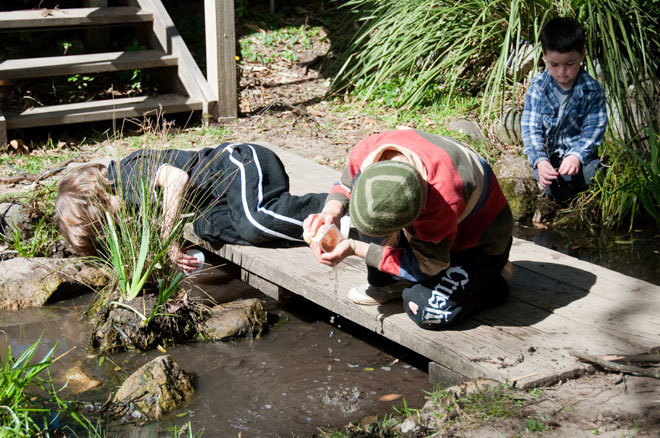 We had five brave volunteers plunge into our pink bath to demonstrate displacement (and how to behave appropriately while plunging into a bath!) Our brave volunteers were then keen to stay in the bath for the rest of the day -and even have their lunch in there!
We had five brave volunteers plunge into our pink bath to demonstrate displacement (and how to behave appropriately while plunging into a bath!) Our brave volunteers were then keen to stay in the bath for the rest of the day -and even have their lunch in there!
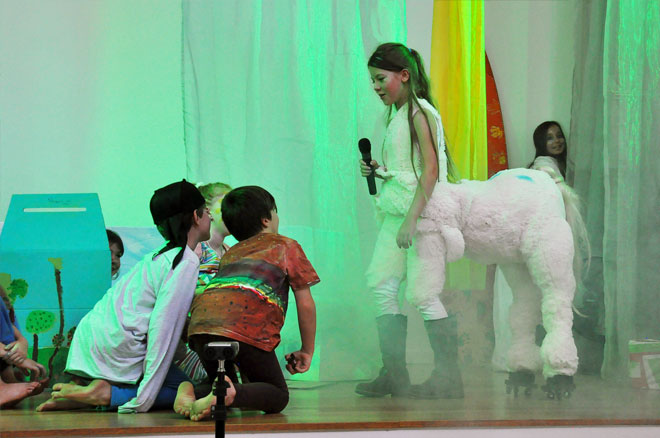 After rave reviews and the loudest applause I have heard for quite some time our class play came to an end last week with a smoothness and professionalism well beyond the thespian’s years that created it.
After rave reviews and the loudest applause I have heard for quite some time our class play came to an end last week with a smoothness and professionalism well beyond the thespian’s years that created it.
The energy and enthusiasm was huge as we belted out our lines, danced til our legs almost fell off and spooked the daylights out of many a youngin’.
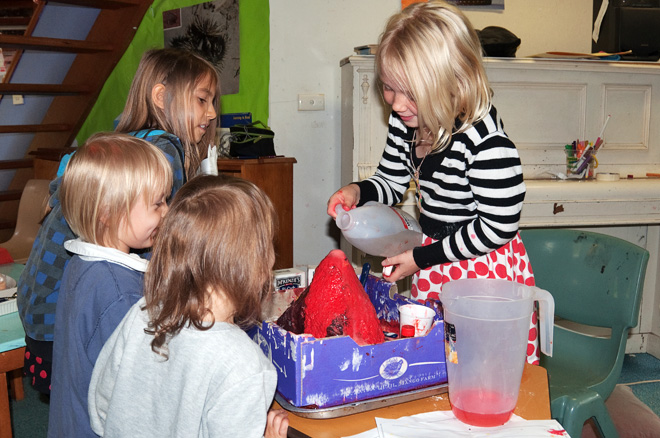 This week we have finally presented our research projects to both parents and the other two classes.
This week we have finally presented our research projects to both parents and the other two classes.
All visitors were very impressed with the diversity and creativity exhibited by all of our budding little researchers.
From Da Vinci’s flying machines to the humble mobile phone we covered it!
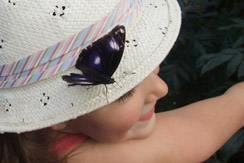 A massive week in the history of weeks this week as we once again made our way to ‘Science in the City’.
A massive week in the history of weeks this week as we once again made our way to ‘Science in the City’.
For those of you who are unsure what this epic science experience is all about it is basically a mixture of awesome hands on activities, exciting interactive presentations and the glorious freedom to wander about the museum picking and choosing what you wish to explore and investigate (in small groups, with parental/teacher supervision, of course, at all times).
This preposterously educational journey is topped off with a rather generous serving of lunch and playtime across the road in Hyde Park, followed by another round of sniffing about the museum seeking out truffles of information ranging from the history of mankind to the tragic demise of the colossal Aussie mega beasts!!!
It’s all things natural history and modern science with the added bonus of a temporary expo room full of enthusiastic scientific types bursting to share their areas of expertise and games/challenges with anyone and everyone!
It’s a jam-packed day which leaves everyone absolutely ballooned with new found facts and information and the teachers staggering under the weight of pamphlets, freebies and informational show bags!
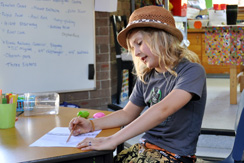 Journal time happens after morning flow and is intended to give each child their own time to think, move or express themselves as they see fit for the day ahead. It is a very quiet and thoughtful time for everyone.
Journal time happens after morning flow and is intended to give each child their own time to think, move or express themselves as they see fit for the day ahead. It is a very quiet and thoughtful time for everyone.
We are using the current extreme weather as a basis for looking at the writing genre of explanations. Students will look at a variety of examples of explanations and will then learn about the specific features of what is included in a ‘good’ explanation. They will look at the words used, the structure, tense and style in detail and be encouraged to include these when they write their own explanation.
We then start a process of writing our own class explanation (about how a flood occurs) before heading off to explore their own extreme world phenomenon and write their own explanation of how it occurs.
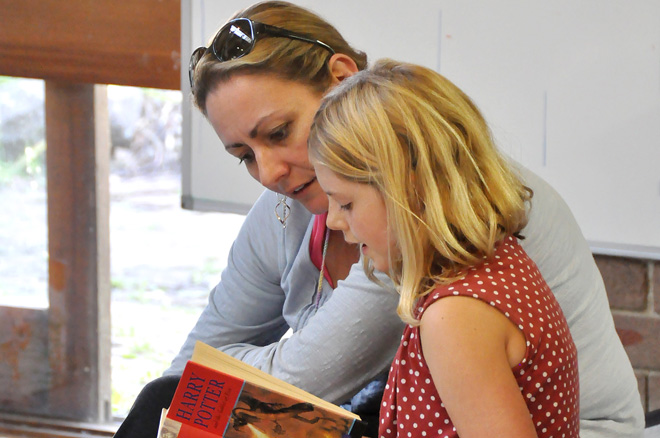 We are going to be introducing several different types of reading genre formats to the class, including newspaper articles and reports.
We are going to be introducing several different types of reading genre formats to the class, including newspaper articles and reports.
The students will work together in small groups, read together and discuss any issues that arise from their reading.
Skills of note-taking and summarising, highlighting key issues and generating further questions will be covered.
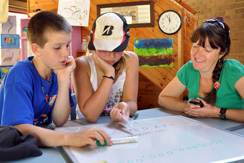 Maths is taking on a slightly different format this term. Each student is given a ‘Challenger’ sheet which contains several activities ranging from open ended measurement / number questions to playing new maths game with a friend (and making new ones up) , from exploring the maths equipment to designing and constructing. An important feature of the program is that each student has at least 3 sessions in small groups with either Juli or Suzanne.
Maths is taking on a slightly different format this term. Each student is given a ‘Challenger’ sheet which contains several activities ranging from open ended measurement / number questions to playing new maths game with a friend (and making new ones up) , from exploring the maths equipment to designing and constructing. An important feature of the program is that each student has at least 3 sessions in small groups with either Juli or Suzanne.
For the first 3 weeks our main area of focus is on numeration – looking at the number systems; how we can visually make numbers, quick mental recall using addition and subtraction and trying to assign patterns to what we are discovering. After the first 3 weeks we will look at various other areas of maths sometimes linking it to the theme and at other times it will be a stand-alone subject looking at areas that need particular attention.
So what’s the difference between a hundred thousand and a million? Just how much bigger is a trillion than a billion? Does the number trillion formally exist or did a kid make it up because it rhymes with billionand million? Some of the pre-highs looked at how close this trillion is to googleplex, which, the students asked of in context of infinity. What remains is to physically see a million – so if you have any ideas of what we could collect or view, come share your thoughts.
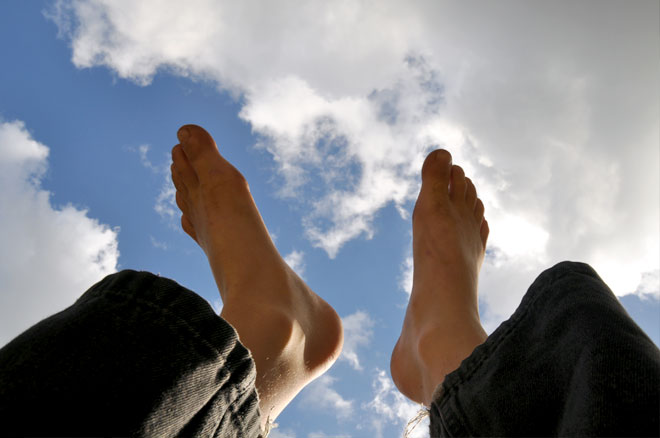 Our theme this term is ‘Our Extreme World’ – taken directly from the natural extreme weather that Australia has been suffering this summer.
Our theme this term is ‘Our Extreme World’ – taken directly from the natural extreme weather that Australia has been suffering this summer.
We will also be watching a current affairs news program for 40 minutes each week - Behind the News (BTN) - and using this as a basis for discussions and reading.
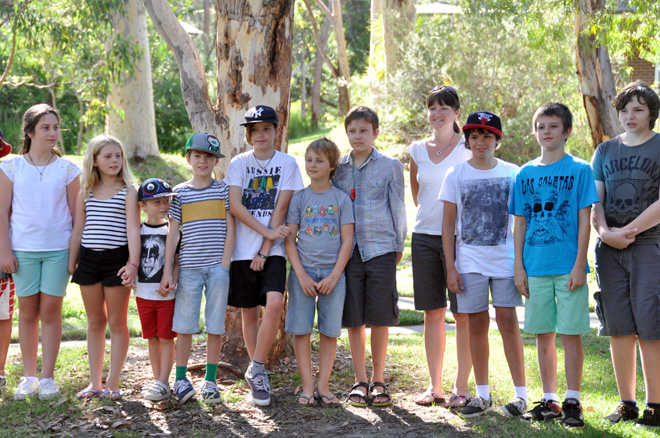 Our very energetic class bubbles as they prepare to teach each other and Michelle and Juli G . Each student will teach the class for a lesson. Thus far we have teachers signed up for music, physical adventures and sports skills training, cooking, critical thinking, creation and drawing and crafts, science and railway design!
Our very energetic class bubbles as they prepare to teach each other and Michelle and Juli G . Each student will teach the class for a lesson. Thus far we have teachers signed up for music, physical adventures and sports skills training, cooking, critical thinking, creation and drawing and crafts, science and railway design!
Michelle and I have books and ears poised! The lessons are underway and we are enjoying watching the children experience the huge energy of the class as they aim to share their passions and interests.
Those working in small groups have worked quite successfully - as the children seem to get greater focus on their new skills.
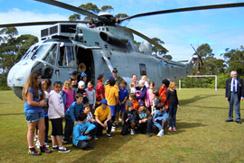 Camp for group 3 was a little different this year. We did not set out to be entertained or physically ‘stretched’ as we did last year at an outdoors centre, nor did we visit a city - as we did when visiting Canberra in 2009.
Camp for group 3 was a little different this year. We did not set out to be entertained or physically ‘stretched’ as we did last year at an outdoors centre, nor did we visit a city - as we did when visiting Canberra in 2009.
In 2011, group 3 set out to find out a little about how some other people live, to make friends with a new community and to explore a stunning region of NSW, beautifully cared for by the indigenous community of Wreck Bay in Jervis Bay.
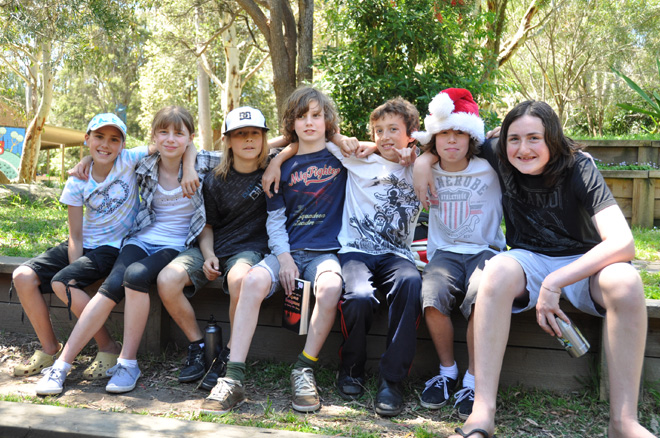
Fourth term in group 3 is greatly effected by this energy and if nothing more, you will sense its culmination on the last day of term, when we gather on the last school day of the year to farewell them. The Pre- Highs final presentations and formalities given at their farewell are a chance for our students to consciously transition out of their Primary learning zone into that place from which they can be ready to enter their next phase - high school.
Transitions have always been important at Kinma. Acknowledging an era’s completion – perhaps a class or group where you have ‘lived’ for some time as the elder and moving on as a young one into the next stage. This flow of learner to elder through playgroup, preschool and then through groups one to three in the Primary, allows our students to be regularly reminded of the learning cycle of life, while intermittently recognising and honoring important turning points.
Please see our transition to high school page
In our youngest group, we laugh, we whisper, we sing, we scream, we sit, we jump, we eat, we learn, we play. We love!
We have introduced JAM into Group 1 – which stands for ‘Just a Minute’. JAM is a time where the children can sit or lay down for one minute in complete silence (we’ve pushed it to three minutes on the children’s insistence, as a compromise from their demands of fifty minutes or even the entire day being in silence!)
After an exuberant and energetically spent out-time, it’s a great way for the children to calm their minds and bodies and makes an easier transition into the calmer needs of in-time.
Our middle group are encouraged to be curious, creative and enquiring in their explorations.
We explore a whole bunch of wonderful, enjoyable, fun-filled activities with smiles aplenty and young brains bulging with new found knowledge.
Group 3 is our oldest group and students are extended through indepth critical thinking, reflection, analysis and dialogue.
Morning flow is the wonderful way we start each day to bring our oldest group together.
Each student leads an activity of their choice – it may be an inside/outside game or sharing or something else they want to bring to the group.
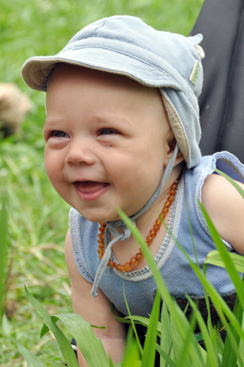 If you have young children and are interested in a connecting with like-minded parents, come and try our Playgroup.
If you have young children and are interested in a connecting with like-minded parents, come and try our Playgroup.
Playgroup operates from within the School which is set in 5 acres of beautiful bush land. We use our multi-purpose meeting space and large outdoor playground where children can play while you relax and enjoy a cuppa. Playgroup runs every Monday during term time, 9:30am-11:00am.
Visits are $5 / family to cover morning tea and supplies. There are no membership fees.There is no need to book or to commit to a full term. Simply come along on any Monday when it's on.